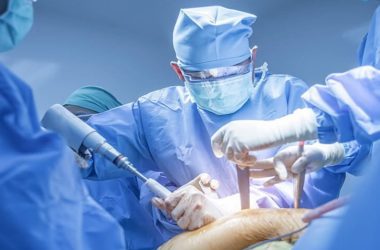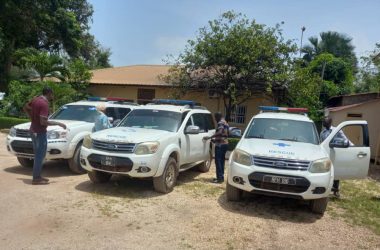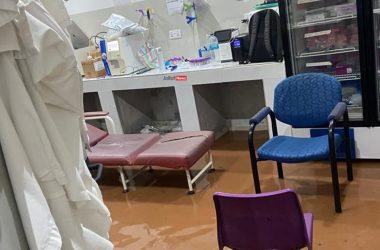 (JollofNews) – The Disease Control and Elimination Theme of MRC Unit the Gambia has been awarded a Grand Challenge Exploration grant, an initiative funded by the Bill & Melinda Gates Foundation, to pursue an innovative global health and development research project using medical-detection dogs to identify people with malaria parasites.
(JollofNews) – The Disease Control and Elimination Theme of MRC Unit the Gambia has been awarded a Grand Challenge Exploration grant, an initiative funded by the Bill & Melinda Gates Foundation, to pursue an innovative global health and development research project using medical-detection dogs to identify people with malaria parasites.
Grand Challenges Explorations (GCE), fund individuals worldwide to explore ideas that can break the mold in how we solve persistent global health and development challenges. To receive this funding, co-Principal Investigators (PI) demonstrated a bold idea in one of five critical global heath and development topic areas.
Led by Professor Steve Lindsay from the Durham University, Milton Keynes, UK, in partnership with the Medical Detection Dogs (the UK charity that train dogs to detect the odour), the London School of Hygiene & Tropical Medicine and the MRC Unit the Gambia.
The Gambian arm of the study will be led by Prof Umberto D’Alessandro, Unit Director. The study will seek to find a way of detecting malaria that is non-invasive and can be used to test a large number of samples at a time. Current tests require finger-prick blood collection and laboratory screening.
Gambian PI Prof Umberto D’Alessandro, commented, “Using trained dogs to detect malaria-infected individuals may seem unusual but it is also attractive as it could provide a non-invasive method to diagnose malaria. Dogs are already used to detect other medical conditions and this may be true also for malaria. This first project will establish whether further development of this approach is warranted.
About Grand Challenges Explorations

Grand Challenges Explorations is a US$100 million initiative funded by the Bill & Melinda Gates Foundation. Launched in 2008, over 1186 projects in more than 61 countries have received Grand Challenges Explorations grants. The grant program is open to anyone from any discipline and from any organization. The initiative uses an agile, accelerated grant-making process with short two-page online applications and no preliminary data required. Initial grants of US$100,000 are awarded two times a year. Successful projects have the opportunity to receive a follow-on grant of up to US$1 million.
About Medical Detection Dogs
Medical Detection Dogs is a charity started in 2008 by Dr Claire Guest, a scientist and animal behaviour expert, and Dr John Church, a former orthopaedic surgeon.
The charity is based in Buckinghamshire and works in partnership with researchers, NHS Trusts and universities to train specialist dogs to detect the odour of human disease. It has two main arms: cancer detection dogs and medical alert dogs.
The Cancer Detection Dogs are trained to detect the odour of volatile substances in urine or breath samples. The cancer dogs have the capacity to provide second line screening for cancers that are currently difficult to diagnose reliably, such as prostate cancer. Two papers produced by the charity in 2004 (BMJ) and 2011 (Cancer Biomark) have shown dogs to reliably detect bladder cancer.
The charity is currently conducting two larger-scale trials, one in collaboration with Buckingham NHS Trust into the dogs’ ability to detect breast cancer on breath samples and a second with Milton Keynes University Hospital Trust into prostate, bladder and kidney cancer. These will be published in 2018 and 2019 respectively.
The Medical Alert Assistance Dogs are trained to assist individuals who manage complex medical conditions, such as diabetes, on a day-to-day basis. The dogs are taught to identify the odour changes that are associated with certain medical events, such as a drop in blood sugar level. There are currently 50 dogs partnered to diabetics across the UK and with more funding this number will increase.




